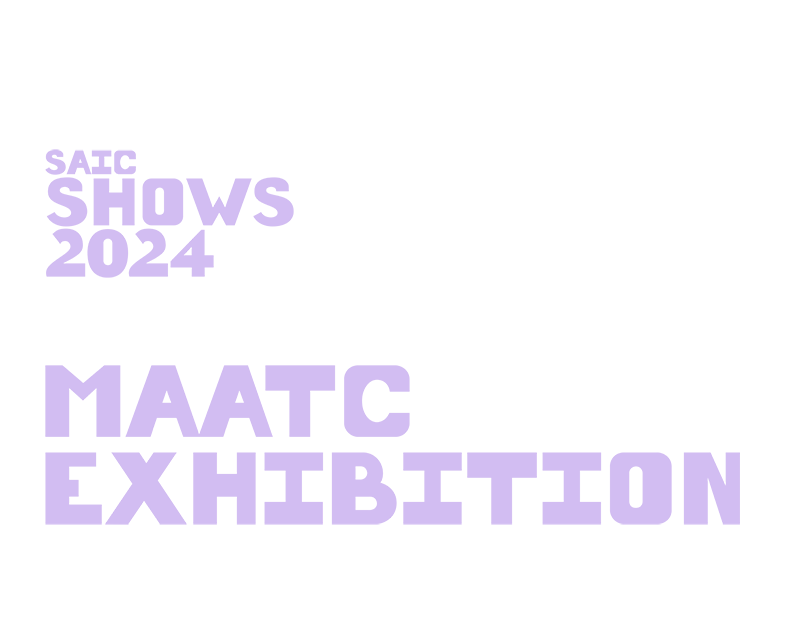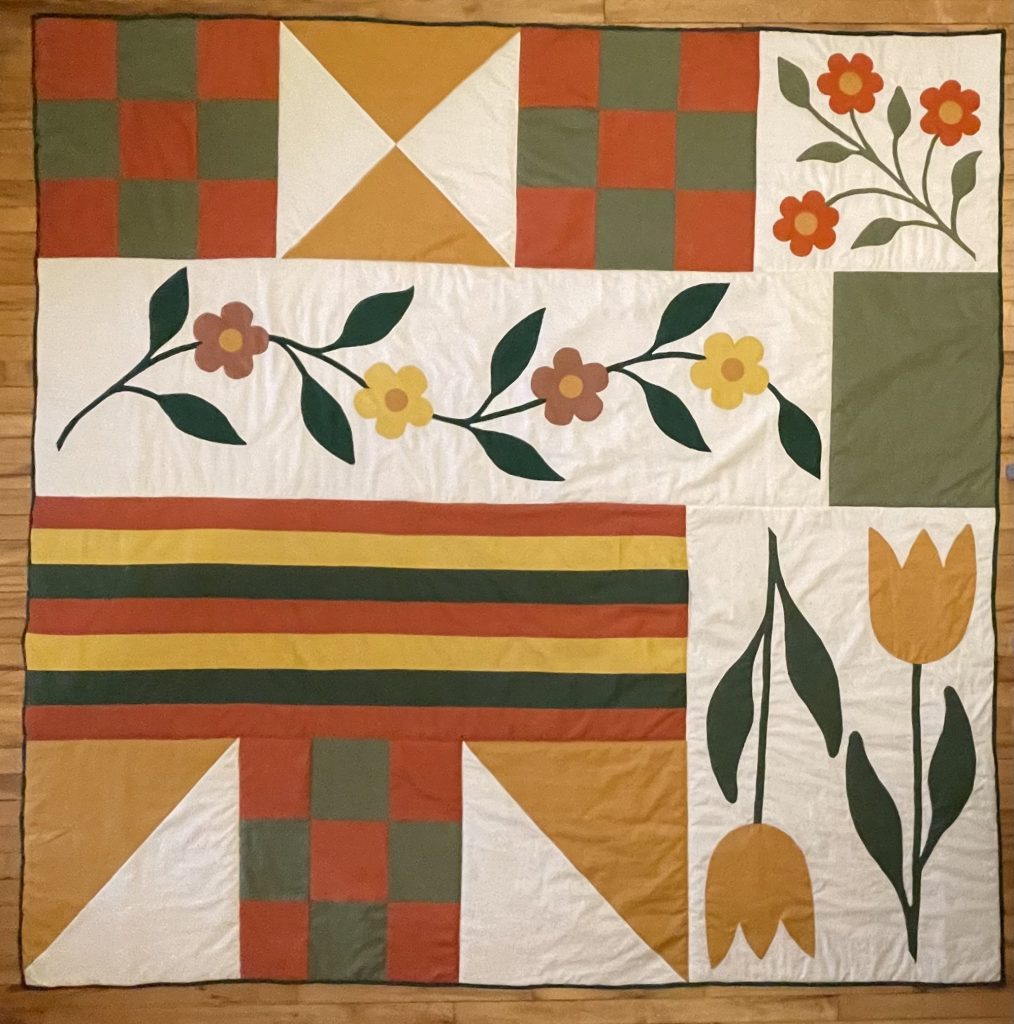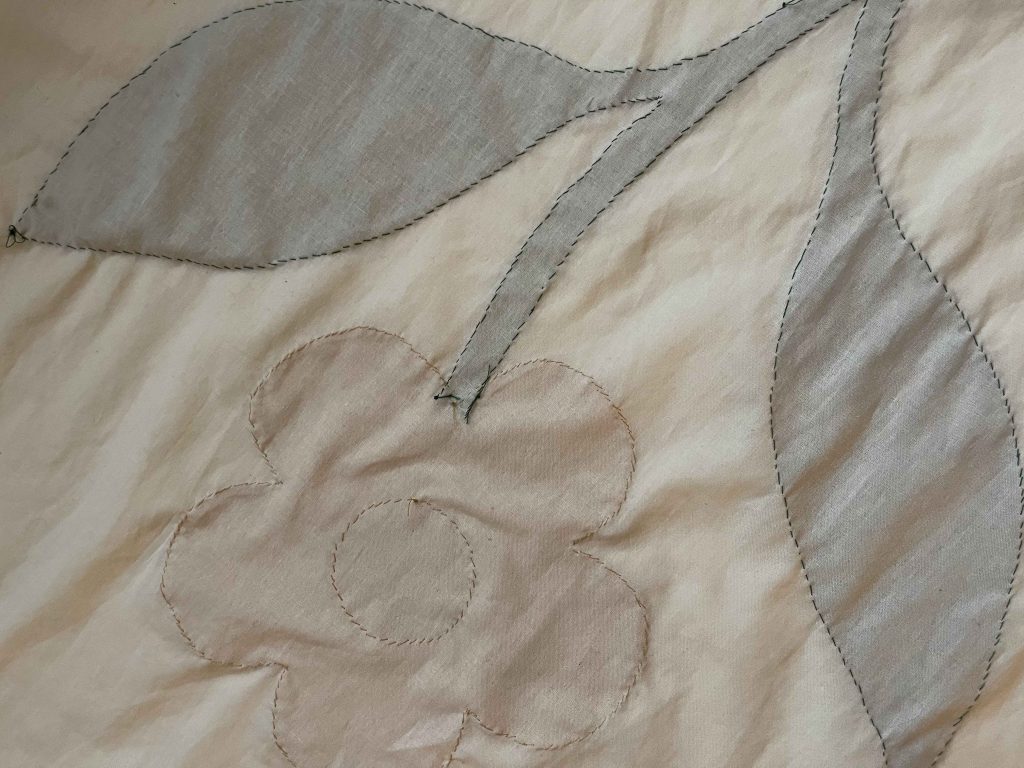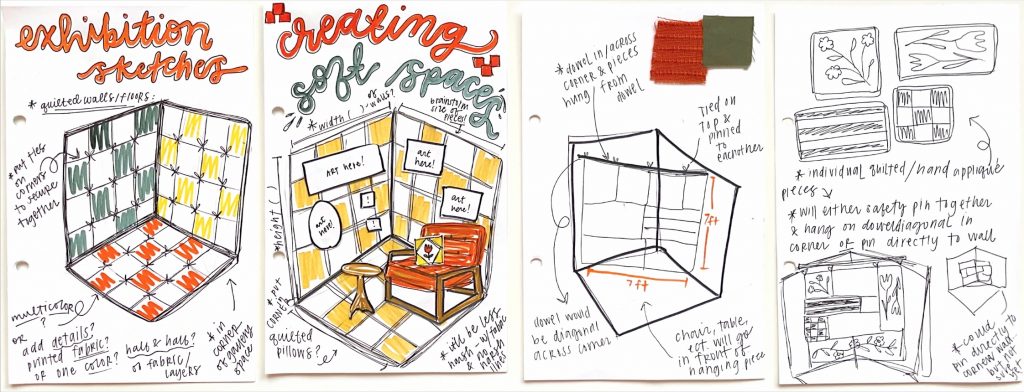Charlotte Falconer is an artist and emerging art therapist from Portland, Oregon. After graduating with her Bachelor of Arts in Psychology with a minor in 2-D Studio Art from Seattle Pacific University, she began her graduate education at the School of the Art Institute of Chicago (SAIC). Charlotte is in her third year at SAIC and is passionate about offering mental health care that is trauma informed and attentive to individuals layered complexities. She is personally committed to engaging in the never-ending journey of self-reflexivity as she continues to develop her approach as a future art therapist. Her current work as an intern at Envision Unlimited Rose Center with adults with intellectual and developmental disabilities is grounded in approaches that promote self-advocacy and empowerment. Outside of graduate school, Charlotte enjoys spending time with friends and family, going to estate sales, and trying new recipes.
As an artist and a future art therapist, I am constantly in process. I am on an endless journey of understanding myself better through looking critically at my identities, bringing each part of myself into the light, and working to root out traits that no longer serve me or my work within the therapeutic space. The mediums that I have historically engaged in are linocut printing, gouache painting, and ceramics. My current art practice is grounded in a desire to push myself out of comfort and into ambiguous spaces through engaging with materials that I have limited experience with. In doing so, it is my hope that my capacity for and comfort with ambiguity – within my art, myself, and the therapeutic space – expands.
Through art based heuristic inquiry, my graduate project outlines my process of engaging with hand appliqué and machine sewing as an artistic practice and method of facilitating personal growth. I am inspired by floral motifs found in traditional American folk art, and the use of craft and textiles as a source of sustenance, learning, and growth. Engaging with new art materials and methods has provided me with space to critique my use of perfectionism as a way to cope with the unknown, experience and begin to reframe ambiguity, and create soft spaces that sustained me as I dismantled my perfectionism. I used color, fabric, plush textures, lighting, and comforting heirloom items to create an enveloping warmth that I embodied through my installation. My piece serves as a tangible representation of the soft spaces that sustained and continue to sustain me as I unrelentingly work towards embracing ambiguity.
Sharing my process of experiencing and reframing ambiguity, and uprooting my perfectionistic tendencies through engaging in unfamiliar art making methodologies will hopefully encourage future art therapists to do the same. Perfectionism can be shaped through individual, institutional, and larger societal sites of shaping, and is rooted in white supremacy and perpetuated through systems of capitalism. It is crucial that we uproot this in ourselves so that we can better support those who we get to work with. Further, lack of ambiguity tolerance can lead to burnout among mental health professionals. With these things in mind, we have to constantly be aware of how parts of ourselves, in my case perfectionism and lack of ambiguity tolerance, can seep into the therapeutic space and cause harm – for ourselves and others. My ability to practice ethical and sustainable art therapy is grounded in my own willingness to embrace ambiguity and dismantle perfectionism in my life so that I can be ready to stand at thresholds of uncertainty and imperfection with those who I get to walk alongside.







